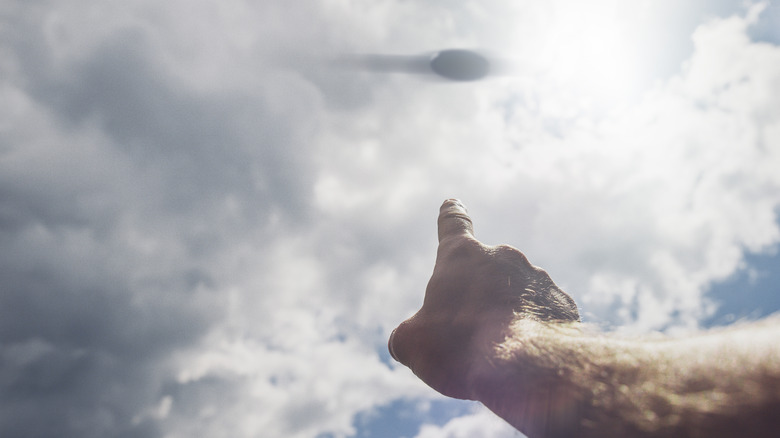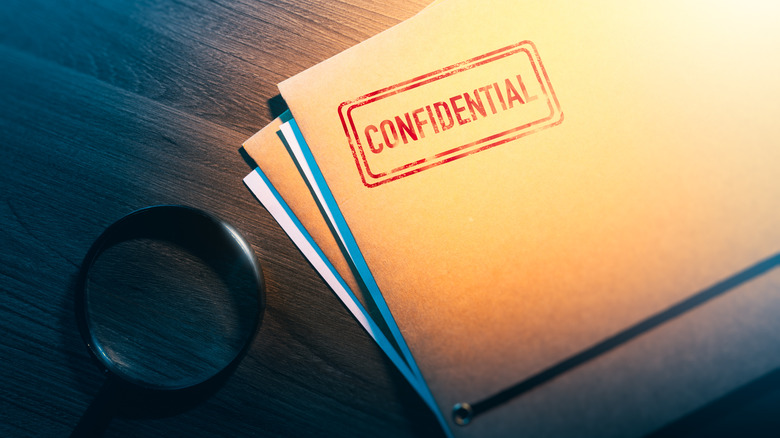The Problem With Studying UFOs, According To An Astrobiologist
Whether you use the more popular term "Unidentified Flying Objects" (UFOs) or the more all-encompassing "Unidentified Aerial Phenomena" (UAP) moniker supplied by the US military, the implications are the same. They involve some form of bizarre, difficult-to-explain events that people — at the civilian and government level — have been trying to find the answers to for quite some time.
UFO sightings have become equal parts national in-joke, fictional fascination, and legitimate concern over the years, with numerous documentaries, mockumentaries, news reports, and more dedicated to solving their mysteries. While they sometimes turn out to actually be a weather balloon or gas pocket or some other mundane real-world thing, there are still several instances that remain unexplained. In which case, bringing in more scientific minds to study the recorded data seems like the most obvious next step, right?
Well, yes and no. According to a Science News interview with astrobiologists Jacob Haqq-Misra from the Blue Marble Space Institute of Science and Ravi Kopparapu from NASA's Goddard Space Flight Center, non-military scientists sort of have their hands tied.
So what's the problem?
In short, the military's long-term love affair with secrecy is getting in its own way. Scientists that want to analyze decades of UAP data are being hampered by their inability to access classified details associated with said data. Misra explains that, when studying data, it's very important to know what instruments were used in the collection of that data. But the military may not be willing to reveal the details of some of its instruments to the public (for a variety of reasons), so anyone trying to piece together the clues will be missing key information right from the beginning.
Another problem is that a significant amount of data on UAP phenomena that has been collected in the past wasn't compiled scientifically. These weren't controlled lab conditions and nobody was there with the specific intention of cataloging as much relevant data as they could document. UAP data is, in many cases, the product of unexpected and spontaneous occurrences that caught people off guard, with no preparation beforehand.
None of this is to say that it's impossible to dig into these records and start making sense of what's been documented, but a lot of details may be left up to speculation or educated guessing. Until we reach the point at which all information in the files made available to researchers is allowed to be explored, we won't really know the full truth of the matter.

